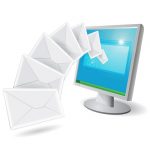 The expression “life in the fast lane” has been used in the past to describe anything from people working too much, too hard, and too long to abusing substances. With the advent of the information age and its attendant smart phones, Skype, iPads and other devices and technologies, life has now moved from the fast lane onto the super highway. People remain in constant connection and find themselves multitasking everything from work (long after business hours) to the news, and from social media to the stock exchange. It is easy to feel overwhelmed in these circumstances; the challenge becomes how to manage this “information overload.”
The expression “life in the fast lane” has been used in the past to describe anything from people working too much, too hard, and too long to abusing substances. With the advent of the information age and its attendant smart phones, Skype, iPads and other devices and technologies, life has now moved from the fast lane onto the super highway. People remain in constant connection and find themselves multitasking everything from work (long after business hours) to the news, and from social media to the stock exchange. It is easy to feel overwhelmed in these circumstances; the challenge becomes how to manage this “information overload.”
What is information overload?
According to yourdictionary.com, information overload is defined as “too much information for one person to absorb…[from] TV, newspapers, magazines, e-mails and faxes…The inability to process everything one hears and sees; the availability or supply of too much information, or a state of stress which results.”
What happens when people experience information overload?
Below are some of the findings reported by researcher Jonathan Spira in 2011:
- Reading and processing just 100 e-mails per day can occupy more than half of a worker’s day.
- For every 100 people who are unnecessarily copied on an e-mail, 8 hours are lost.
- 94% of knowledge workers surveyed at some point have felt overwhelmed by information to the point of incapacitation.
With information overload, one can also experience feelings of frustration, inability to focus, and anxiety.
What can be done about the stress of information overload?
- Judiciously use “reply all” on e-mail;
- Take e-mail or information breaks;
- Critically evaluate e-mail, using folders for excess information that can be read another time or deleted if necessary;
- Use modifiers like “and” or “or” in Internet searches to refine the results;
- Respect your colleagues’ time—consider calling them instead of sending an e-mail;
- Prioritize information sent to you, reading what is needed for the current time period.
Can practicing meditation help manage information overload?
Yes! Sala Horowitz, PhD, describes meditation as “a group of techniques, most of which originated in Eastern religious or spiritual traditions and are also practiced today for stress reduction…” Meditation has been studied widely in the professional literature, and evidence suggests it can enhance cognition and prevent cognitive decline. People experiencing information overload may find practicing meditation crucial to quieting and clearing the mind. There are many different types and techniques, from Zen meditation to mindfulness meditation and even yoga mantra.
Here are a few tips to help you as you start a meditation practice:
- Create a dedicated meditation space;
- Use the same posture each time;
- Try to set a consistent time for meditation;
- Start gradually;
- Most importantly, turn off all cell phones and beepers. (That said, there are many good meditation apps for smart phones, such as Relax Melodies, Mindful Meditations, and Infinite Abundance [first meditation free] .)
In this information age, improving our well-being may well depend on learning to manage information overload.
To find an excellent doctor who is right for you, please call our Physician Referral Service at 866.804.1007.
